By Paul Comiskey, Socrates Workforce Solutions
At Socrates Solutions we recently designed an Analytical Problem-Solving Application using the Scenes Chatbot Learning Game Designer from Business Simulations as an aid to training Engineers working in Industry. We then used this application at both IMR (Irish Manufacturing Research) and the University of Limerick with highly experienced engineers who work in a variety of disciplines and Industries.
The Scenes Problem-Solving Application has proved particularly useful in improving their understanding of the techniques required for Problem Statement, Problem Characterization, Model Building and Validation. Each of these topics are at the heart of the Analytical Problem-Solving process. Scenes runs on any browser and is optimised for mobile phone browsers so it lends itself well to a dynamic classroom environment. The steps of Analytical Problem Solving are not intuitive, even for technical people, and require the discipline of using specific tools to focus the effort to produce working Models.
Because Scenes is an authoring tool the first step was designing the application. This is a pretty painless process involving a Scenes designer and a subject matter expert (SME) on the topic being explored – in this case Analytical Problem Solving. The first stage is for the designer and the SME to create the perfect path (the happy path) for each learning scenario (which we call a scene). The easiest way to do this is using post-it notes on a flipchart as shown in the image below.
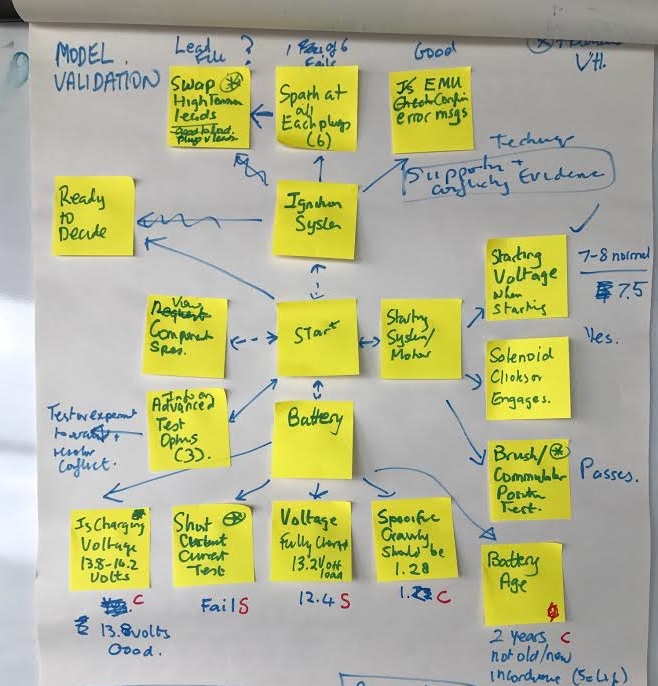
Once we had the basic happy path we were able to load this into Scenes using its graphical "canvas" designer tool (see below for screenshot of the completed scene). This allowed us to build the scenario incrementally - testing each step as we added it. The next stage was then to add alternative paths (non-optimum and bad decisions) to give the learner the option of making poor and non-optimal choices as well as good ones!
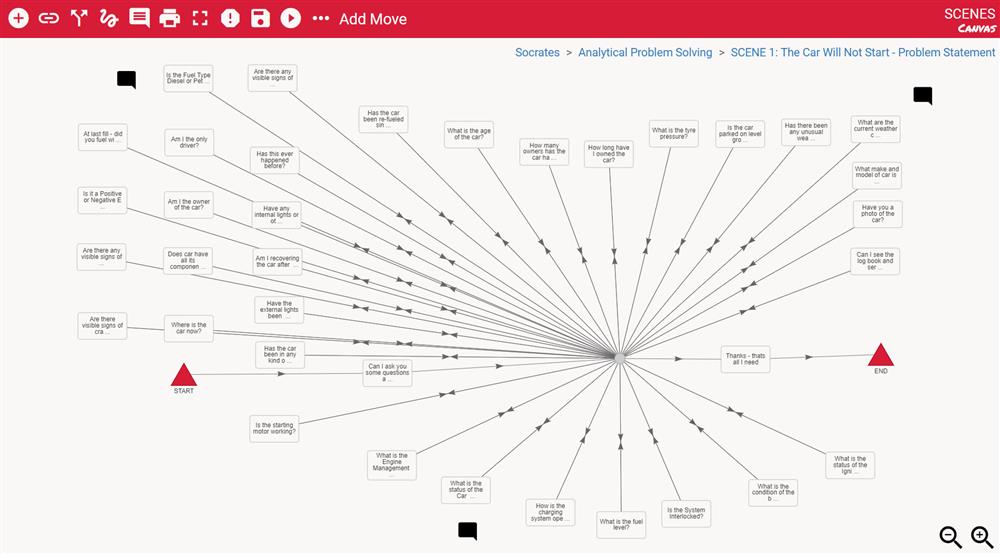
When it is being used the Scenes application provides additional support to the Instructor who will already have outlined the tools to be used for each specific step in the Process such as - 5Ws and 1H, Kepner Tregoe, and Basadur Analysis for Problem Statement. Scenes puts the learner on the spot by challenging them to test their understanding of how the various thinking tools should be used and scores their use regarding critical path and time. Without a tool like Scenes an instructor can only see a learner’s outcomes rather than their thought processes which are more important and insightful for learning.
A fragment of a typical Scenes dialogue between a learner and the chatbot is shown below:
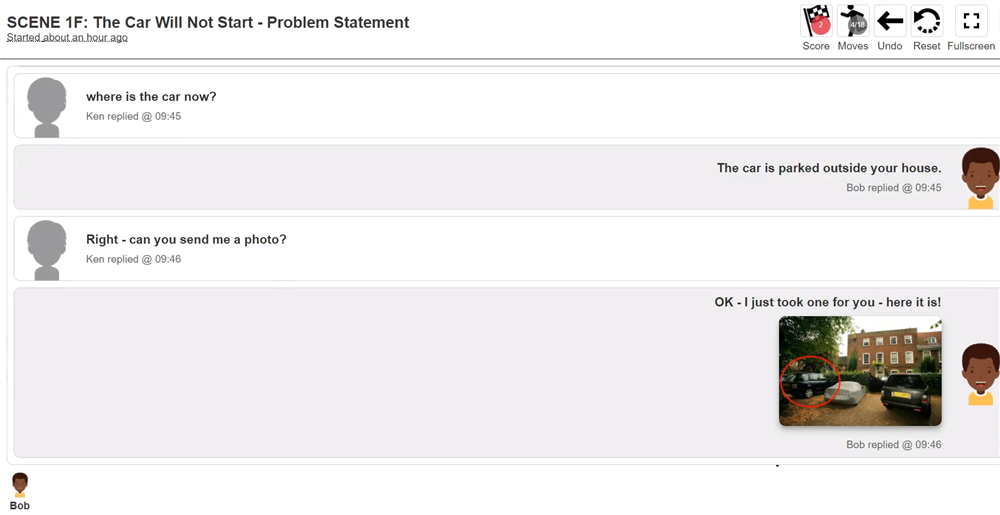 At the end of a scene (which typically lasts 10-20 minutes) the learner is invited to take a short quiz to establish how well they have sought, listened to and understood the information which the chatbot could provide (example quiz below).
At the end of a scene (which typically lasts 10-20 minutes) the learner is invited to take a short quiz to establish how well they have sought, listened to and understood the information which the chatbot could provide (example quiz below).
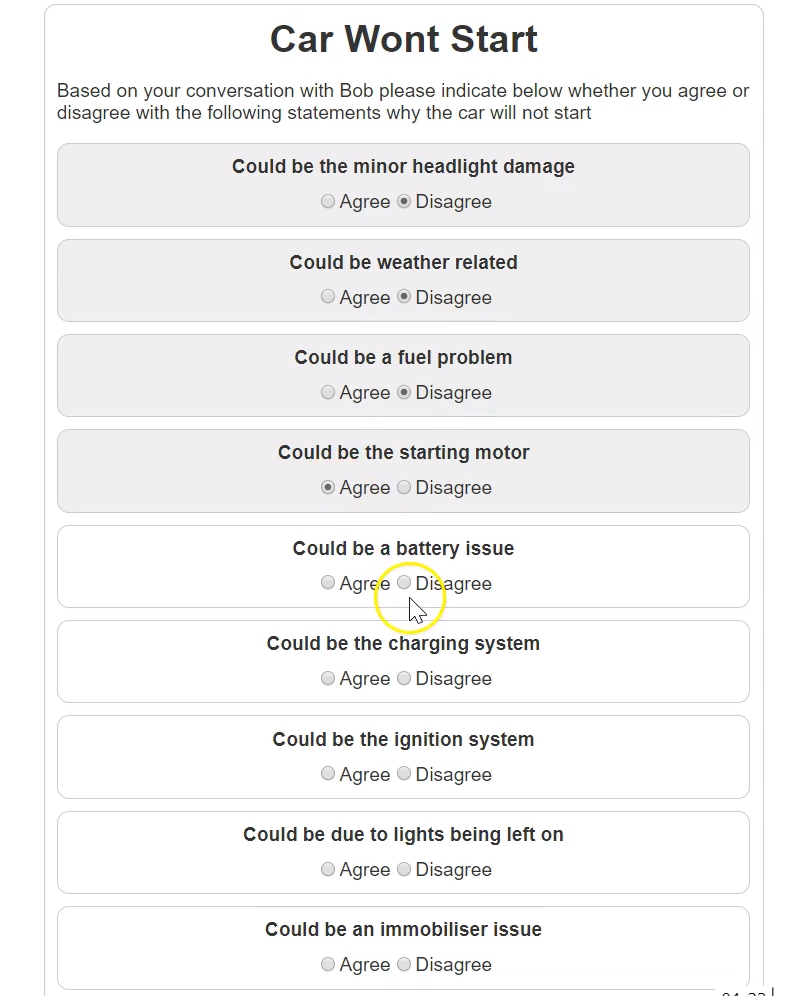
The learner is then directed to their personal scorecard which analyses their performance in the conversation with the chatbot across a number of criteria such as information gathering, process fidelity, bad moves avoided and good moves made. This dashboard keeps track of every attempt the learner makes at each conversation (example dashboard below).
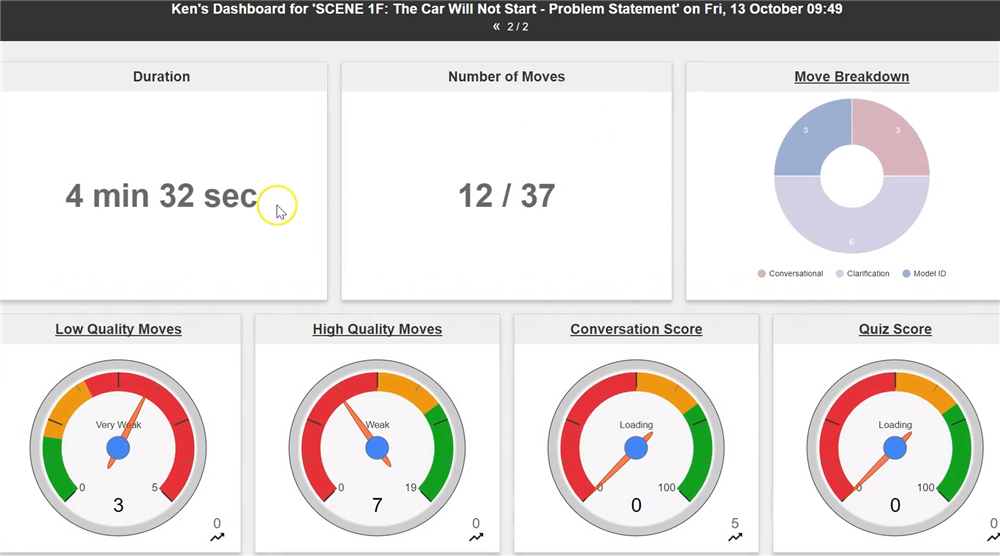
The learner is then invited to review the entire transcript of the conversation and to drill-down deeper into specific points within the dialogue (example transcript drill-down below).
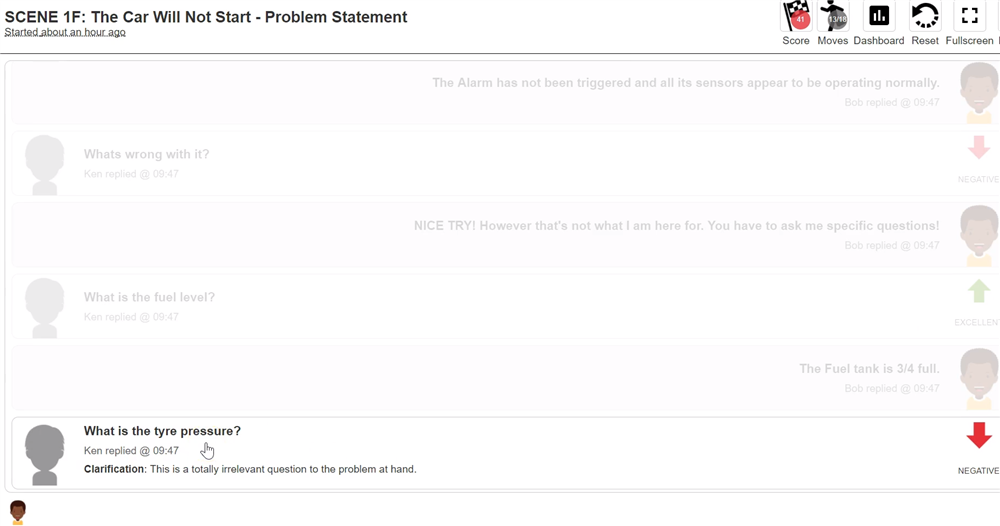
Finally the learner is encouraged to attempt the scene again to come up with a better score than last, with the scorecard keeping track of their improvements each time.
Scenes does not give the learners any answers but instead highlights parts of the dialogue where scores are non optimal. It therefore supports a "learning by self-discovery model" which makes for stickier and deeper learning than the "explain and test" models normally associated with e-learning technologies.
Learners have benefited from using the Scenes Problem-Solving Application as it has improved their understanding by challenging them to work in competition with the application in a defined timeframe. This has kept them more focused and increased their Learning Rate.
Expert Learners (as these individuals tend to be) require innovative methods to stimulate learning in both a collective and individual competitive environment. It is also desirable to build in options for PBL (Problem Based and Proactive Based Learning) to allow learners to revisit tasks to encourage them in improving their approach and hence outcomes. Scenes provides this enabling platform.
MORE INFORMATION